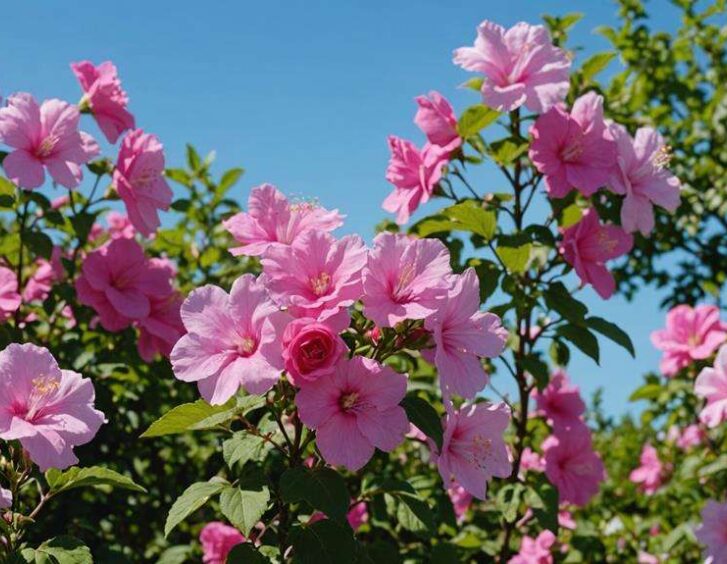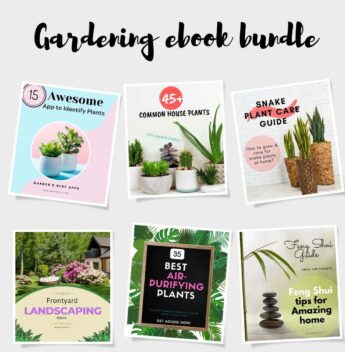You're looking to discover the stunning Rose of Sharon selection! You'll find over 15 varieties to choose from, each offering a unique complement to your garden's style and size. From compact shrubs to tall, stately plants, there's a Rose of Sharon to suit your needs. Some varieties, like 'Aphrodite', bloom midsummer to late fall, while others, like 'Blue Chiffon', feature delicate, lacy flowers. Whether you're looking for privacy, color, or a low-maintenance addition, there's a Rose of Sharon perfect for you. Explore further to find the ideal variety for your garden's unique needs and let your garden flourish.
Key Takeaways
• With over 15 varieties, Rose of Sharon offers a diverse range of options for unique garden styles and sizes.
• Compact shrubs and tall, stately plants are available, including varieties that bloom midsummer to late fall.
• Rose of Sharon thrive in full sun to partial shade, growing between 3-16 feet tall, and are suitable for hardiness zones 5-9.
• Low maintenance and versatile, these plants provide privacy and color throughout the growing season.
• Consider factors like bloom color, size, growth habit, and hardiness zone when selecting the right Rose of Sharon variety for your garden.
Rose of Sharon Varieties Explained
With over 15 stunning varieties to choose from, you can select the perfect Rose of Sharon to complement your garden's unique style and size. Whether you're looking for compact shrubs or tall, stately plants, there's a Rose of Sharon variety to fit your needs.
You might opt for 'Aphrodite', which blooms midsummer to late fall, or 'Blue Chiffon', with its delicate, lacy flowers. If you prefer a more compact option, 'Lil Kim' or 'Pollypetite' might be the way to go. Whatever your taste, there's a Rose of Sharon variety that will add beauty and charm to your outdoor space.
Take your time exploring the many options, and you'll find the perfect fit for your garden.
Characteristics and Features
As you explore the many Rose of Sharon varieties, it's helpful to understand the characteristics and features that make these shrubs so versatile and low-maintenance.
You'll find that they thrive in full sun to partial shade, growing between 3-16 feet tall, and are suitable for hardiness zones 5-9. With varieties suited to different garden sizes and color schemes, you're sure to find one that fits your style. Plus, they're low maintenance and perfect for novice gardeners.
Rose of Sharon shrubs provide privacy and color throughout the growing season, making them an excellent addition to any garden. With their ease of care and stunning blooms, it's no wonder they're a popular choice among gardeners.
Planting Tips and Considerations
When selecting a Rose of Sharon variety, keep in mind factors like height, sun requirements, and color preferences to ensure the shrub thrives in your garden.
You'll want to take into account the amount of sunlight your garden receives, as some varieties require full sun while others can tolerate partial shade.
Think about the height you need, too - from compact varieties like 'Lil Kim' to taller ones like 'Purple Pillar'.
With so many varieties to choose from, you're sure to find one that fits your garden's unique needs.
Selecting the Right Variety
You can narrow down your search for the perfect Rose of Sharon by considering the specific characteristics you need, from bloom color and size to growth habit and hardiness zone.
Think about the space where you'll be planting - do you need a compact variety like 'Lil Kim' or a taller one like 'Purple Pillar'?
Consider the color scheme you want to achieve, whether it's soft pink like 'Blushing Bride' or vibrant purple like 'Ultramarine'.
Some varieties, like 'Orchid Satin', are sterile, while others, like 'Minerva', are non-invasive.
Ideal Garden Locations
Place your Rose of Sharon in a spot that receives full sun to partial shade, ensuring it gets the right amount of light to thrive.
You'll want to choose a location with well-draining soil, as these plants don't tolerate wet feet. Consider planting near a fence or wall to provide support for taller varieties.
If you're looking for a hedge or screen, plant multiple Rose of Sharons 3-5 feet apart. For a dramatic impact, plant a single specimen in a prominent location.
Remember to leave enough space for air circulation and growth. With proper placement, your Rose of Sharon will flourish and bring beauty to your garden.
Companion Plants and Designs
By choosing the right companion plants, you can create a stunning garden design that showcases your Rose of Sharon's beauty. Consider pairing it with plants that complement its vibrant flowers, like black-eyed Susans, coneflowers, or Russian sage.
These drought-tolerant plants will thrive in similar conditions and add a pop of color to your garden. For a more dramatic effect, plant your Rose of Sharon alongside ornamental grasses or shrubs with contrasting textures. Don't be afraid to experiment with different combinations – the key is to find harmony and balance in your garden design.
With the right companion plants, your Rose of Sharon will take center stage and become the star of your outdoor space.
Deer-Resistant and Drought-Tolerant
Many Rose of Sharon varieties are naturally deer-resistant and drought-tolerant, making them ideal for gardens prone to wildlife visits or water restrictions. You can enjoy their beautiful blooms without worrying about deer munching on them or excessive watering.
Varieties like 'Aphrodite', 'Blue Chiffon', and 'Lucy' are perfect for areas with frequent deer visits. If you live in a region with water restrictions, consider 'Chateau de Chambord', 'Diana', or 'Minerva', which thrive in dry conditions.
These traits make Rose of Sharon an excellent choice for gardeners who want low-maintenance, yet stunning, additions to their outdoor space. With these varieties, you can create a beautiful, resilient garden that's perfect for your unique climate and needs.
Low Maintenance and Easy Care
You'll appreciate how Rose of Sharon shrubs fit effortlessly into your busy lifestyle, requiring minimal upkeep and care to thrive.
These shrubs are perfect for novice gardeners, as they're low maintenance and easy to care for. They can tolerate some neglect, making them ideal for those who don't have a lot of time to tend to their garden.
Simply provide them with full sun to partial shade and well-draining soil, and they'll flourish. Water them regularly, but avoid overwatering, which can lead to root rot. Prune them annually to maintain their shape and promote healthy growth.
With minimal care, Rose of Sharon shrubs will provide you with beautiful blooms and a sense of accomplishment, making them a great addition to any garden.
Rose of Sharon in Containers
If you're short on garden space, consider growing Rose of Sharon in containers, which can thrive in large pots or planters with good drainage. This is a great way to add a touch of elegance to your balcony, patio, or even indoor space.
When choosing a container, make sure it's at least 12-18 inches deep and has drainage holes to prevent waterlogged soil. Select a well-draining potting mix and a compact variety like 'Lil Kim' or 'Pollypetite' that won't outgrow the container.
Water regularly, but avoid overwatering, and fertilize lightly during the growing season. With proper care, your container-grown Rose of Sharon will bloom beautifully and provide a sense of belonging to your outdoor or indoor oasis.
Year-Round Interest and Beauty
With its stunning flowers, attractive foliage, and structural branches, your Rose of Sharon provides year-round interest and beauty to your landscape. As the seasons change, your Rose of Sharon adapts, offering something unique to admire.
In spring, new growth emerges, followed by vibrant flowers in summer. Autumn brings warm, golden hues, and in winter, the bare branches create a striking silhouette.
Whether you have a small garden or a large yard, your Rose of Sharon will be a focal point, drawing attention and admiration from neighbors and visitors alike. By incorporating this versatile shrub into your landscape, you'll enjoy a constant sense of beauty and belonging, no matter the time of year.
Frequently Asked Questions
Can I Prune My Rose of Sharon to Maintain a Smaller Size?
You can prune your Rose of Sharon to maintain a smaller size. Pruning helps control the shrub's height and encourages new growth.
Cut back the tallest stems to about one-third of their height in late winter or early spring. Remove any weak or dead branches, and shape the shrub to maintain its natural form.
Regular pruning will keep your Rose of Sharon compact and promote healthy growth.
Are Rose of Sharon Flowers Edible or Safe for Human Consumption?
You're wondering if rose of Sharon flowers are edible or safe for human consumption. The answer is no, they're not recommended for eating.
While they're not toxic, consuming rose of Sharon flowers might cause minor digestive issues due to their slightly bitter taste and potential allergic reactions.
It's best to appreciate these beautiful flowers for their ornamental value, not as a snack. Enjoy them in your garden, but keep them out of your salad!
Can I Grow Rose of Sharon From Seed or Is Propagation Difficult?
You're wondering if you can grow Rose of Sharon from seed or if propagation is difficult.
The good news is that you can grow Rose of Sharon from seed, but it may take some patience. Sow seeds indoors 6-8 weeks before the last frost, and keep the soil warm and moist. Transplant seedlings outdoors when they're around 6-8 inches tall.
Alternatively, you can propagate Rose of Sharon through cuttings or layering, which can be more reliable and faster.
Do I Need to Fertilize My Rose of Sharon Regularly for Optimal Growth?
You don't necessarily need to fertilize your Rose of Sharon regularly for best growth. However, feeding it with a balanced fertilizer in the early growing season can promote healthy growth and blooming.
A slow-release fertilizer or compost can provide essential nutrients. Additionally, mulching around the base can help retain moisture and suppress weeds.
With proper care, your Rose of Sharon will thrive and provide stunning blooms throughout the season.
Can I Transplant a Mature Rose of Sharon to a New Location Successfully?
You're wondering if you can transplant a mature Rose of Sharon to a new location successfully. The good news is, yes, it's possible! However, it's essential to do it carefully.
Choose a new spot with similar sun and soil conditions. Dig carefully around the roots, taking as much of the soil with you as possible.
Water well before and after transplanting, and prune the plant to reduce stress. With proper care, your Rose of Sharon should thrive in its new home.
















